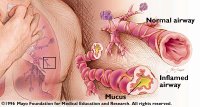Allergic rhinitis (hay fever ) leads to snoring and sleeping problems
Previous research has indicated that allergies could lead to snoring and breathing problems during sleep, including sleep apnea (a disorder that causes breathing to be shallow or stop while sleeping). Hence allergic rhinitis being not only a nuisance by itself, it also result in a lower quality of life due to sleepiness, daytime fatigue, impaired memory, mood and sexuality, with a significantly increased consumption of alcohol and sedatives.













